#i love the 1970s-1980s so like
Explore tagged Tumblr posts
Text
🌷
#this is for no one but#i was listening to bon jovi in the car#and realized i can incorporate both the#ten cents beer night disaster#and the disco demolition disaster#into the hypothetical renzo spinoff#bc. you know. what’s more americana rock n roll#than drunk baseball fans getting violent#both mid-to-late 1970s ??? imagine an amalgamation#i love the 1970s-1980s so like#i just think it’d be fun to incorporate Events like that#we won’t go full forrest gump but fjdhjf#that era was such a hot mess & deserves coverage#everyone fucked up on lead paint#& stagflation … hell yeah
5 notes
·
View notes
Text


🕊Kate Bush, 1980s.
Photos by her brother John Carder Bush.🕊
#70s#1970s#1980s#80s#kate bush#kate my beloved#people say they dont like her makeup cause it looks heavy but I think its so cute#it adds color to the photo i love it
2K notes
·
View notes
Text
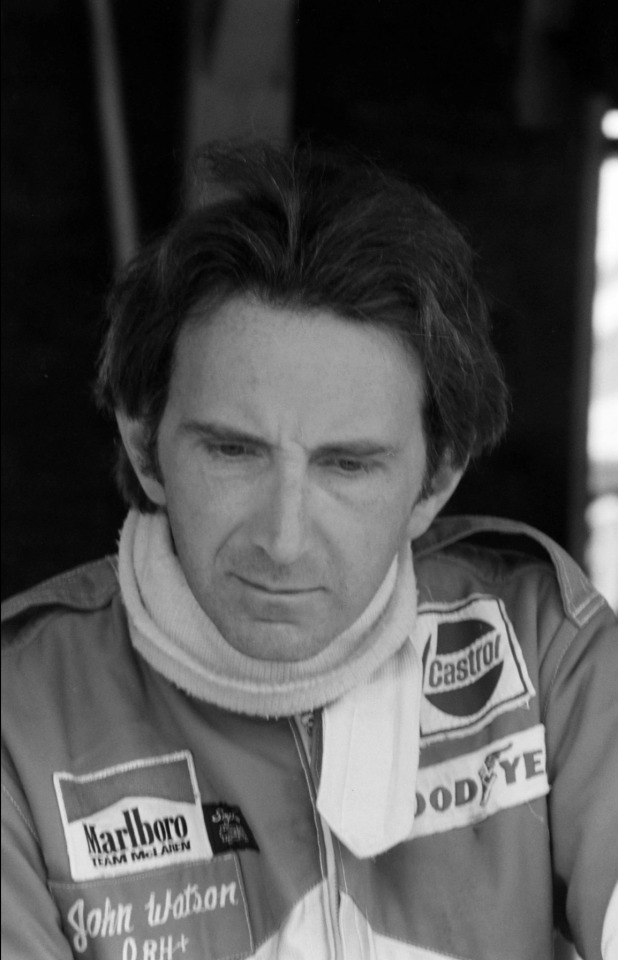
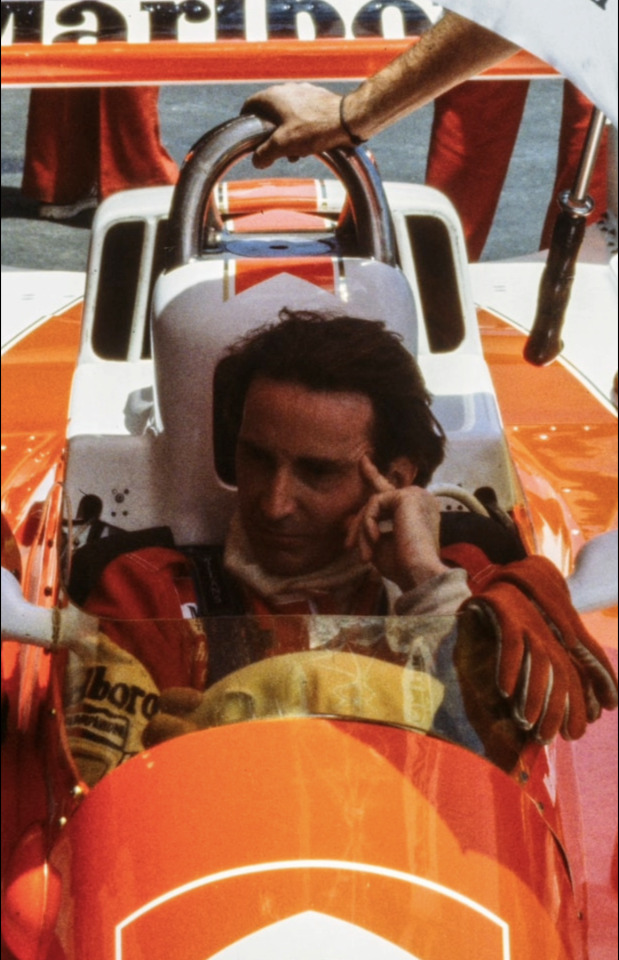

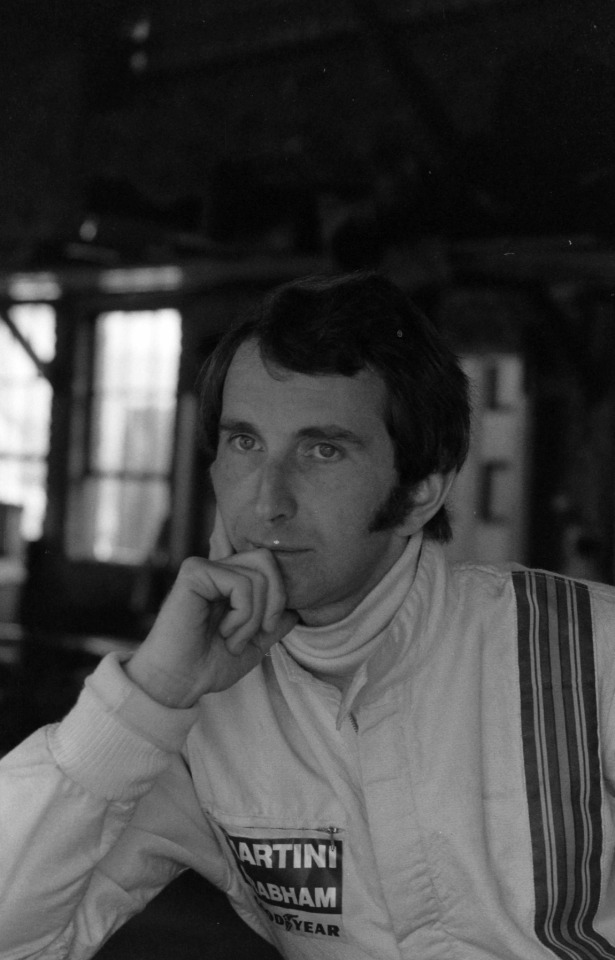
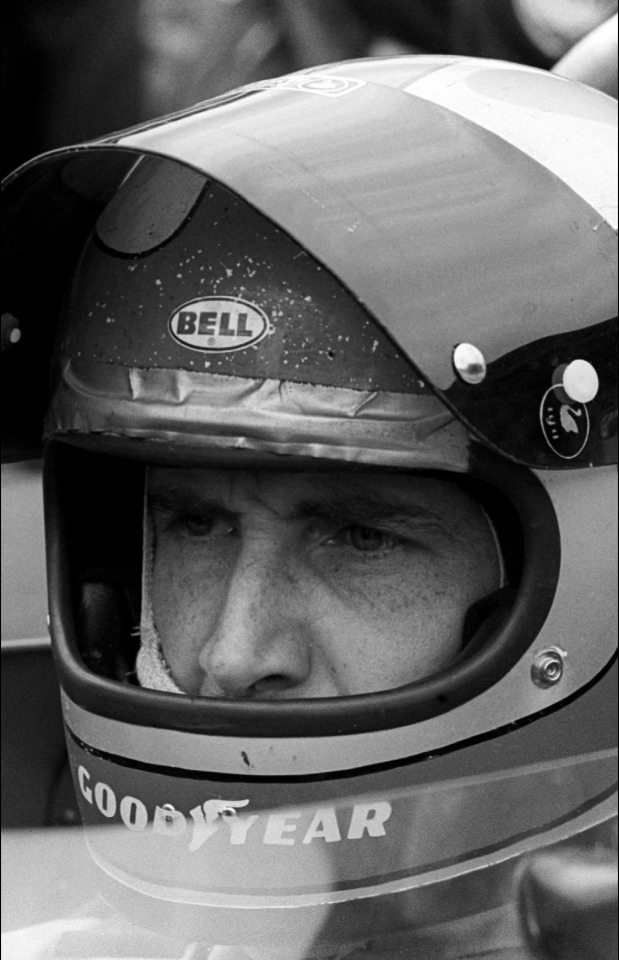

John Whatswrong - a clever nickname used by the McLaren mechanics to describe the serious face of driver John Watson
#i actually chose these pictures at random but turns out he was very serious during south african and beligum grand prixs!!!!#he also hated this nickname. like seriously hated it.#wattie does have a beautiful smile i should point that out. and he's quite funny. great storyteller.#so much so i have watched his beyond the grid episode quite a bit. and pretty much any interview with him.#they somehow nearly always go for over an hour.#my man just loves to talk!!!! what can i say!!!!#i like him quite a bit :-)#john watson#john watson f1#f1#1970s#f1 1970s#1980s#classic f1#f1 1980s
20 notes
·
View notes
Text
Here's a remade masterpost of free and full shakespeare adaptations! Thanks @william-shakespeare-official for this excellent post. Unfortunately, a lot of the links in it are broken, so I thought I'd make an updated version (also I just wanted to organize things a bit more)
Anthony and Cleopatra: ~ Josette Simon, Antony Byrne & Ben Allen - 2017
As You Like It: ~ At Wolfe Park - 2013 ~ Kenneth Brannagh's - 2006
Coriolanus: ~ NYET Alumni - 2016 ~ Tom Hiddleston - 2014 ~ Ralph Fiennes - 2011
Cymbelline: ~ Michael Almereyda's - 2014
Hamlet: ~ David Tennant - 2009 ~ Ethan Hawke & Diane Venora - 2000 ~ Kenneth Branagh's - 1989 ~ BCC's Part One & Two - 1990 ~ Broadway - 1964 ~ Christopher Plummer - 1964 ~ Laurence Olivier's - 1948
Henry IV: ~ BBC's Part One & Two - 1989 ~ The Brussel's Shakespeare Society's - 2017
Henry V: ~ The BBC's - 1990 ~ Laurence Olivier's - 1944
Julius Caesar: ~ Phyllida Lloyd's - 2019 ~ The BBC's - 1979 ~ John Gielgud - 1970
King Lear: ~ The RSC's - 2008 ~ Laurence Olivier - 1983 ~ The BBC's - 1975 ~ James Earl Jones - 1974 ~ Orson Wells - 1953
Love's Labour's Lost: ~ Calvin University - 2016
Macbeth: ~ Antoni Cimolino & Shelagh O'Brien's - 2017 ~ Ian McKellen & Judi Dench - 1969 ~ Sean Connery - 1961
Measure for Measure: ~ Hugo Weaving - 2019 ~ The BBC's - 1990
The Merchant of Venice: ~ Al Pacino - 2004 ~ Trevor Nunn & Chris Hunt - 2001 ~ The BBC's - 1980 ~ Lawrence Olivier - 1973
The Merry Wives of Windsor: ~ The Royal Shakespeare Company's - 1982
A Midsummer Night's Dream: ~ Oliver Chris & Gwendoline Christie - 2019 ~ City of Columbus's - 2018 ~ Julie Taymor's - 2014 ~ The Globe's - 2013 ~ The BBC's - 1988 ~ Lindsay Duncan & Alex Jennings - 1986
Much Ado About Nothing: ~ Shakespeare in the Park - 2019 ~ David Tennant & Catherine Tate - 2011 ~ Kenneth Branagh - 1993 ~ The BBC's - 1984
Othello: ~ The BBC's Part One & Two - 1990
Richard II: ~ David Tennant - 2013 ~ Deborah Warner's - 1997 ~ The BBC's - 1978
Richard III: ~ Ian McKellen - 1995 ~ Laurence Olivier - 1955
Romeo and Juliet: ~ Simon Godwin's - 2021 ~ The BBC's - 1988 ~ Laurence Harvey & Susan Shentall - 1954
The Taming of the Shrew: ~ Ontario production? ~ American Conservatory Theater - 1976 ~ Richard Burton & Elizabeth Taylor - 1967 ~ Mary Pickford & Samuel Taylor - 1929
The Tempest: ~ Gregory Doran's - 2017 ~ The BBC's - 1988
Timon of Athens: ~ Barry Avrich's - 2024
Troilus and Cressida: ~ Audio Production ~ This one I found on youtube? - 2016
Titus Andronicus: ~ Anthony Hopkins - 1999
Twelfth night: ~ Texas Shakespeare Festival's - 2015 ~ Alec Guinness, Joan Plowright & Ralph Richardson - 1970
Two Gentlemen of Verona: ~ Katherine Steweart's - 2018 ~ The BBC's
The Winter's Tale: ~ Antony Sher - 1999 (Warning: they don't have a bear...)
Bonuses:
Time Loop Hamlet! (A personal fav of mine)
Rock Opera Hamlet???
Shakespeare animated tales
The Complete Works Of Shakespeare Abridged comedy
Romeo and Julieta: A Día de los Muertos Love Story
There’s also many other Latine Shakespeare adaptations listed in this archive
From the original post:
A Midwinter's Tale, about a man trying to make Hamlet.
Russian Hamlet here
Here's Scotland, PA, the 2001 modern Macbeth retelling.
Rave Macbeth for anyone interested is here.
This one is the Taming of the Shrew modern retelling.
The french Romeo & Juliet musical with English subtitles is here!
Here's the 1948 one,
the Orson Wells Othello movie with Portuguese subtitles there
A Lego adaptation of Othello here.
Here's commentary on David Tennant's Richard II
#phew! this took me like four hours#btw please lmk if any of y'all have tennant & tate's Much Ado anywhere#been searching everywhere#anyway! yeah#big thanks to everyone who recommended some of these versions to me#and dude. shakespeare official. you did an incredible job compiling all this in the first place#i was originally just gonna add on to the post#but it already had so much going on that i wanted to take it somewhere else for a fresh start#shakespeare#fresh from the river#save#mini banger#humble banger
1K notes
·
View notes
Text
also in regards to that last article about varied ways of thinking about psychosis/altered states that don't just align with medical model or carceral psychiatry---I always love sharing about Bethel House and their practices of peer support for schizophrenia that are founded on something called tojisha kenkyu, but I don't see it mentioned as often as things like HVN and Soteria House.

ID: [A colorful digital drawing of a group of people having a meeting inside a house while it snows outside.]
"What really set the stage for tōjisha-kenkyū were two social movements started by those with disabilities. In the 1950s, a new disability movement was burgeoning in Japan, but it wasn’t until the 1970s that those with physical disabilities, such as cerebral palsy, began to advocate for themselves more actively as tōjisha. For those in this movement, their disability is visible. They know where their discomfort comes from, why they are discriminated against, and in what ways they need society to change. Their movement had a clear sense of purpose: make society accommodate the needs of people with disabilities. Around the same time, during the 1970s, a second movement was started by those with mental health issues, such as addiction (particularly alcohol misuse) and schizophrenia. Their disabilities are not always visible. People in this second movement may not have always known they had a disability and, even after they identify their problems, they may remain uncertain about the nature of their disability. Unlike those with physical and visible disabilities, this second group of tōjisha were not always sure how to advocate for themselves as members of society. They didn’t know what they wanted and needed from society. This knowing required new kinds of self-knowledge.
As the story goes, tōjisha-kenkyū emerged in the Japanese fishing town of Urakawa in southern Hokkaido in the early 2000s. It began in the 1980s when locals who had been diagnosed with psychiatric disorders created a peer-support group in a run-down church, which was renamed ‘Bethel House’. The establishment of Bethel House (or just Bethel) was also aided by the maverick psychiatrist Toshiaki Kawamura and an innovative social worker named Ikuyoshi Mukaiyachi. From the start, Bethel embodied the experimental spirit that followed the ‘antipsychiatry’ movement in Japan, which proposed ideas for how psychiatry might be done differently, without relying only on diagnostic manuals and experts. But finding new methods was incredibly difficult and, in the early days of Bethel, both staff and members often struggled with a recurring problem: how is it possible to get beyond traditional psychiatric treatments when someone is still being tormented by their disabling symptoms? Tōjisha-kenkyū was born directly out of a desperate search for answers.
In the early 2000s, one of Bethel’s members with schizophrenia was struggling to understand who he was and why he acted the way he did. This struggle had become urgent after he had set his own home on fire in a fit of anger. In the aftermath, he was overwhelmed and desperate. At his wits’ end about how to help, Mukaiyachi asked him if perhaps he wanted to kenkyū (to ‘study’ or ‘research’) himself so he could understand his problems and find a better way to cope with his illness. Apparently, the term ‘kenkyū’ had an immediate appeal, and others at Bethel began to adopt it, too – especially those with serious mental health problems who were constantly urged to think about (and apologise) for who they were and how they behaved. Instead of being passive ‘patients’ who felt they needed to keep their heads down and be ashamed for acting differently, they could now become active ‘researchers’ of their own ailments. Tōjisha-kenkyū allowed these people to deny labels such as ‘victim’, ‘patient’ or ‘minority’, and to reclaim their agency.
Tōjisha-kenkyū is based on a simple idea. Humans have long shared their troubles so that others can empathise and offer wisdom about how to solve problems. Yet the experience of mental illness is often accompanied by an absence of collective sharing and problem-solving. Mental health issues are treated like shameful secrets that must be hidden, remain unspoken, and dealt with in private. This creates confused and lonely people, who can only be ‘saved’ by the top-down knowledge of expert psychiatrists. Tōjisha-kenkyū simply encourages people to ‘study’ their own problems, and to investigate patterns and solutions in the writing and testimonies of fellow tōjisha.
Self-reflection is at the heart of this practice. Tōjisha-kenkyū incorporates various forms of reflection developed in clinical methods, such as social skills training and cognitive behavioural therapy, but the reflections of a tōjisha don’t begin and end at the individual. Instead, self-reflection is always shared, becoming a form of knowledge that can be communally reflected upon and improved. At Bethel House, members found it liberating that they could define themselves as ‘producers’ of a new form of knowledge, just like the doctors and scientists who diagnosed and studied them in hospital wards. The experiential knowledge of Bethel members now forms the basis of an open and shared public domain of collective knowledge about mental health, one distributed through books, newspaper articles, documentaries and social media.
Tōjisha-kenkyū quickly caught on, making Bethel House a site of pilgrimage for those seeking alternatives to traditional psychiatry. Eventually, a café was opened, public lectures and events were held, and even merchandise (including T-shirts depicting members’ hallucinations) was sold to help support the project. Bethel won further fame when their ‘Hallucination and Delusion Grand Prix’ was aired on national television in Japan. At these events, people in Urakawa are invited to listen and laugh alongside Bethel members who share stories of their hallucinations and delusions. Afterwards, the audience votes to decide who should win first prize for the most hilarious or moving account. One previous winner told a story about a failed journey into the mountains to ride a UFO and ‘save the world’ (it failed because other Bethel members convinced him he needed a licence to ride a UFO, which he didn’t have). Another winner told a story about living in a public restroom at a train station for four days to respect the orders of an auditory hallucination. Tōjisha-kenkyū received further interest, in and outside Japan, when the American anthropologist Karen Nakamura wrote A Disability of the Soul: An Ethnography of Schizophrenia and Mental Illness in Contemporary Japan (2013), a detailed and moving account of life at Bethel House. "
-Japan's Radical Alternative to Psychiatric Diagnosis by Satsuki Ayaya and Junko Kitanaka
#personal#psych abolition#mad liberation#psychosis#altered states#antipsych#antipsychiatry#mad pride#peer support#schizophrenia#i have a pdf of the book somewhere if anyone wants#the book and the documentary also discuss some of the pratical struggles in creating a community like this which i also found helpful as#someone who is very interested in helping open a peer respite.
2K notes
·
View notes
Text
the history of animation in a nutshell
Early 1900s: hey what if comic strips could like move?
Late 1910s early 1920s hey what if we mashed this up with live action people?
late 1920s: hey what if this thing had sound?
Early to mid 1930s: hey what if this had people actually talking and also color?
late 1930s: hey you know that super cool movie that one lady animated with paper cut out silhouettes? What if we did that with painted cells? Would people even pay to see that? Never mind it turns out the answer is yes.
1940s: ah shit most of our animators got drafted and/or hate us now cause we weren’t paying them. IT’S PROPAGANDA TIME BABY. Also haha hitler got hit with a mallet and also the most racist depictions of Japanese people ever.
1950s to 1960s : oh what’s this newfangled thing? Television? What if you could air cartoons on it? Oh fuck no I ain’t paying that much to get the charecters to have different backgrounds and for the charecters to like, move fluidly. Also manga and anime are steadily growing more popular.
1970s: (Ralph Bakshi walks into a comics store and finds a furry comic) X rated animated movie? *cue the screams of mothers and their unsuspecting children now being introduced to the revolutionary idea that cartoons don’t equal kids stuff? WHAT IS THE WORLD COMING TO?
1980s to 1990s: we can have full on animated Broadway musicals? Wait, what do you mean animated movies can count for the Oscar’s? What do you mean now they get their own catagory because the academy still thinks their for babies? Anime and manga are taking off in the west. SWEET JESUS WHAT DRUGS ARE THE JAPANESE ON SHOWING THIS SHIT TO KIDS. But also why is it so fucking good. Maybe some of these aren’t even meant for kids? Wait We can sell toys to kids with cartoons? Wait we can actually put effort into these cartoons on television? The fuck to you mean we can animate in 3D now? What do you mean we can have well animated, well written sitcom shows like the simpsons? What do you mean you can make cartoon charecters say fuck? What drugs are creators at Nickelodeon on? Do I even want to know?
2000s: oh my god, there is this one show that I really like cause it’s really well written and genuinely funny but I can’t talk about it because it’s animated and we all know cartoons are for babies right? Oh look it’s the transformers movie, look how far CGI has evolved so we can make the transformers in a movie.
2010s: holy shit I know these shows are for kids but they’re just well written and have so much meaningful things to say about the world. Wait, it’s cool to like cartoons now? They they have fandoms for this? Fuck yeah I’m in. (Enters one of the most notoriously toxic fandoms of all time) THEY HAVE GAY PEOPLE IN THESE SHOWS NOW? AND COMPLEX EMOTIONAL STORYTELLING? AND ADULT ANIMATED SHOWS CAN BE MORE THAN JUST SITCOMS WITH THE SAME JOKES AND STYLE? WHY IS IT THAT EVERY DISNEY CARTOON SINCE GRAVITY FALLS INCLUDE THINGS THAT GET MORE AND MORE FUCKED UP? WHY DO I FUCKING LOVE IT? WHY THE FUCK DID DISNEY DO THE OWL HOUSE DIRTY LIKE THAT?
2020s: I got this show I wanna pitch but it dosen’t fit into any box that the networks want and also I’m afraid that they’ll just randomly cancel it before I can finish the story I want to tell. Wait, I can just post the pilot on my YouTube channel, see if anybody actually likes this thing I made and just make the show independently? FUCK THE NETWORK! I AM THE NETWORK
#Animation#indie animation#cartoons#classic cartoons#disney#warner bros#Out of the inkwell#Flesher studios#Gravity falls#star vs the forces of evil#amphiba#the owl house#steven universe#Bojack horseman#glitch productions#ramshackle#the amazing digital circus#Murder drones#lackadaisy#hazbin hotel#Ducktales#infinity train#ralph bakshi#fritz the cat#sailor moon#neon genesis evengelion#revolutionary girl utena#helluva boss#the simpsons#south park
764 notes
·
View notes
Text
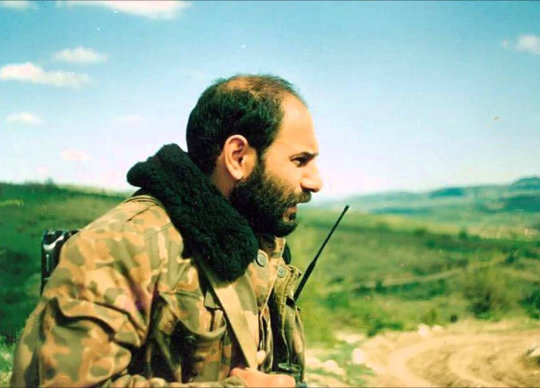
Monte Melqonyan/Մոնթե Մելքոնյան (1957-1993)
Honestly, I don't even know where to begin. He's one of those extraordinary individuals about whom countless books could be written and numerous movies could be made, yet still, so much would remain untold. You might wonder, "He's a National Armenian Hero—cool, but why should I know about him?" My answer is simple: if the world had more people like him, especially in today's times, it would be a much better place. He fought for justice, embodied culture and education, and radiated a deep love for his people and humanity as a whole. I believe everyone should aspire to have a little bit of Monte's spirit within them, regardless of their nationality.
Now, it's important to note that some things written about him in the Western press can be questionable and inaccurate. So, I would advise taking most of the information from those sources with a grain of salt.
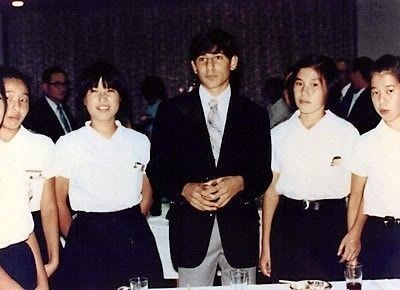
Monte was born on November 25, 1957, into an Armenian family in Visalia, California, that had survived the Armenian Genocide. From 1969 to 1970, his family traveled through Western Armenia, the birthplace of his ancestors. During this journey, Monte, at the age of twelve, began to realize his Armenian identity. While taking Spanish language courses in Spain, his teacher had posed him the question of where he was from. Dissatisfied with Melkonian's answer of "California", the teacher rephrased the question by asking "where did your ancestors come from?" His brother Markar Melqonyan remarked that "her image of us was not at all like our image of ourselves. She did not view us as the Americans we had always assumed we were." From this moment on, for days and months to come, Markar continues, "Monte pondered [their teacher Señorita] Blanca's question Where are you from?"
In high school, he excelled academically and struggled to find new challenges. Instead of graduating early, as suggested by his principal, Monte found an alternative - a study abroad program in East Asia. The decision to go to Japan was not random. He had been attending karate clubs and was the champion of the under-14 category in California. He also studied Japanese culture, including taking Japanese language courses. After completing his studies at a school in Osaka, Japan, he went to South Korea, where he studied under a Buddhist monk. He later traveled to Vietnam, witnessing the war and taking numerous photographs of the conflict. Upon returning to America, he had become proficient in Japanese and karate.
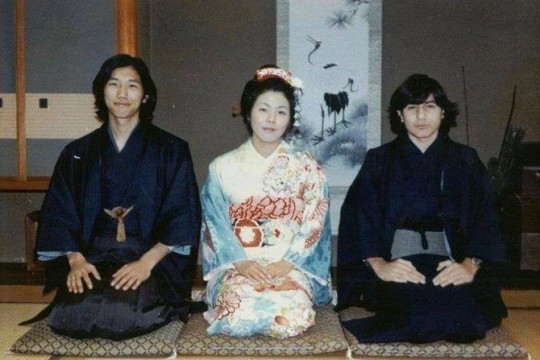
Having graduated from high school, Monte entered the University of California, Berkeley, with a Regents Scholarship, majoring in ancient Asian history and archaeology. In 1978, he helped organize an exhibition of Armenian cultural artifacts at one of the university's libraries. A section of the exhibit dealing with the Armenian Genocide was removed by university authorities at the request of the Turkish consul general in San Francisco, but it was eventually reinstalled following a campus protest movement. Monte completed his undergraduate work in under three years. During his time at the university, he founded the "Armenian Students' Union" and organized an exhibition dedicated to the Armenian Genocide in the late 19th and early 20th centuries in the Ottoman Empire and the Republic of Turkey.
Upon graduating, he was accepted into the archaeology graduate program at the University of Oxford. However, Monte chose to forgo this opportunity and instead began his lifelong struggle for the Armenian Cause.
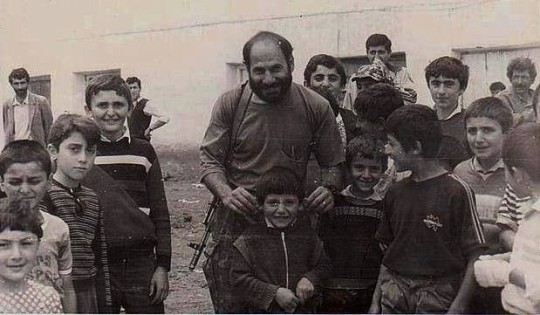
In the fall of 1978, Monte went to Iran and participated in demonstrations against the Shah. Later that year, he traveled to Lebanon, where the civil war was at its peak. In Beirut, he participated in the defense of the Armenian community. Here, he learned Arabic and, by the age of 22, was fluent in Armenian, English, French, Spanish, Italian, Turkish, Persian, Japanese, and Kurdish.
From 1980, Monte joined the Armenian Secret Army for the Liberation of Armenia (ASALA – I promise to tell you more about them later) and quickly became one of its leaders. In 1981, he participated in the planning of the famous Van operation. In 1981, he was arrested at Orly Airport in France for carrying a false passport and a pistol. During his trial, Monte declared, "All Armenians carry false passports—French, American—they will remain false as long as they are not Armenian." Over the following years, he perfected his military skills at an ASALA training camp, eventually becoming one of the group's principal instructors.
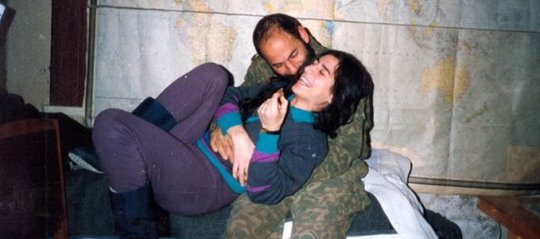
Monte with his wife Seda
After being released from a French prison (once again) in 1989, Monte arrived in Armenia in 1991, where armed clashes between Armenians and azerbaijanis had already begun. He founded the "Patriots" unit and spent seven months in Yerevan working at the Academy of Sciences, writing and publishing the book "Armenia and its Neighbors." In September of the same year, he went to the Republic of Artsakh to fight for his fatherland and its people. Due to his military expertise, he was appointed Chief of Staff of the Martuni defense district in 1992. His sincerity and purity quickly won the love and respect of the local population and the Armenian community as a whole.
Throughout his conscious life, Monte fought for the rights of Armenians, recognition of the Armenian Genocide, and the reclamation of Armenian homeland.
There are various versions of Monte Melqonyan's death circulating in both Armenian and azerbaijani media. According to official Armenian information, Monte was killed on June 12, 1993, by fire from an azerbaijani armored vehicle.
Monte remains a lasting testament to the incredible potential unleashed when the Armenian patriotic heart unites with sharp intellect.
youtube
In case you'd like to put a voice to the face and hear about the Artsakh struggle directly from Monte, here he is speaking about it in English.
#so many things have been left out#but I guess this is a good starting point#I promise to tell you more about ASALA and Van Operation in near future#monte melqonyan#armenia#armenian history#armenian culture#world history#artsakh#artsakh is armenia#translated literature#մոնթե մելքոնյան
290 notes
·
View notes
Text
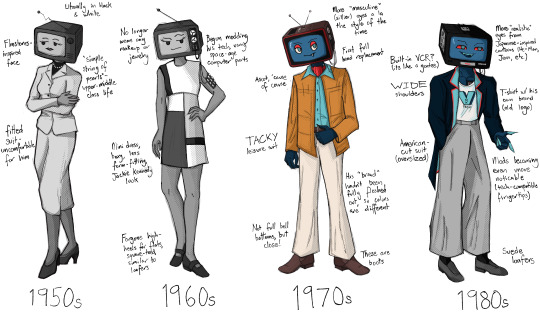
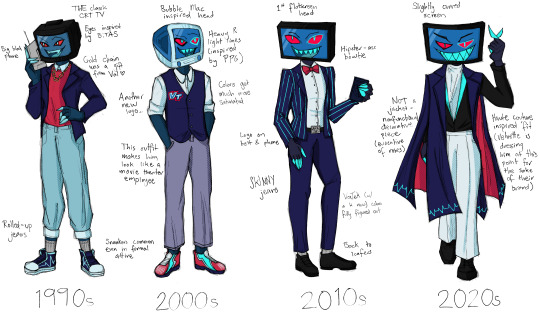
I had an idea to redesign vox because I didn't love that a character obsessed with modernization would wear a top hat and bowtie. then after a brief stint into madness where I read my partner's historic costuming textbook I drew.... all this.
(side note: the idea of vox being a trans man who transitioned AFTER death was super compelling and absolutely inspired by @prince-liest so while this is not direct fanart of their series I wanted to give a shoutout anyway!!!)
okay some TRULY unhinged rambling about historic costume below the cut YOU HAVE BEEN WARNED!
1950s: for this design I very much did not want to go to the typical a-line housewife look, because I feel that is unfitting for vox's character. instead I went for a more business look, but there is still a level of femininity that he would have been expected to perform. i wanted to express his discomfort with that through the pose and expression, though at the time he wouldn't necessarily have a framework for why he hated it
1960s: this one was very fun. i loved the idea of vox beginning to eschew some of the expected feminine presentation, and he no longer wears makeup, jewelry, or hose (though its hard to tell in black & white); however, he's kind of at war with himself in this time period. he's obsessed with seeming perfect and having a respectable image, so he would not go in for the counter-culture movements that were so big in the 60s. he's still kind of riding those coattails though, pushing those boundaries while still not acknowledging his queerness.
1970s: to me, it was very important that the gender hit as he entered the world in color. in my mind the gender euphoria is physically manifested in a wizard of oz situation - he can become who he always has been. anyway, gender aside, I think it was very important to me personally that he wore an ascot. it was for my mental health.
1980s: I wanted the 1980s to be the period where he began to gain some power and notoriety because of the de-regulation of television during this period to allow more ads, mirroring real-world history. I think if the 70s were when vox gained some real confidence, the 80s are when he got an Ego (tm). "business casual" also began to become more acceptable in this time period, and the t-shirt/suit jacket combo was very important for me to include, as to me it epitomizes the commercialism and machismo of the 80s.
1990s: this was actually the decade I was the most nervous to design, and yet I think it turned out the best? the 90s are known for grunge, which I think is NOT vox's style at all. I decided instead to lean hard into the yuppie look, which I know is more associated with the 80s but was definitely still a thing in the 90s. I also allowed a little hip-hop influence in the form of a gold chain from val, which is not something I think vox would ever pick on his own.
2000s: if the 90s were the decade I was worried about and turned out great, the 2000s are the decade I thought I had down SO GOOD and then totally floundered in execution. I still love the bubble-mac inspired head, and I tried to make his clothes as "round" as possible. I also like that this is the time where his saturation got cranked. however, I don't know if I'm in love with the vest and super bright sneakers, because again, looking back on it, he kind of looks like he works at a movie theater or best buy or some shit lol,,,
2010s: I think it's telling that this is by far the closest to his canon design (2014 tumblr lookin ass). I really wanted to pull from that hipster tech bro era, but unfortunately that aesthetic has a veneration for "retro" which again, is not fitting for vox. I still think he would wear the bowtie during this time because, well... he sure does in the show!
2020s: this was fun because I had an excuse to pull from haute couture design rather than street fashion because of the introduction of velvette into his life. I truly do not think velvette would let vox and val walk around in the outfits that they do because it would be an actual embarrassment LMAO. for this, I wanted his decorative "robes" to be evocative of the time he depicted himself as a priest AND of a cape/robe of an emperor. he does think of himself as that bitch, after all.
483 notes
·
View notes
Text
I’ve been doing a lot of research on the wizarding world and here are some canon things I have found out that I didn’t know
Molly and Arthur did not go to school with the marauders. They started in 1961.
Gideon and Fabian were between the ages of 31-41 when they died, I thought they were young like James and Lily. Molly is 2 years younger then them.
Bellatrix, Narcissa, and Andromeda all went to school with Molly and Arthur but they were sorted into Slytherin while Molly and Arthur were sorted into Gryffindor.
Bill was born in 1970, Charlie in 1972, Percy in 1976, Fred and George in 1978, Ron in 1980, and Ginny in 1981.
Molly and Arthur didn’t know that they were having a daughter until Ginny was born.
Hermione Granger is the oldest out of the three friends.
Rowling confirmed Dumbledore’s sexuality
Grindelwald and Voldemort weren’t fighting for the same things
Tom Riddle was conceived under a love potion. Some even say that’s why he can’t feel love.
Hermione became minister of magic
James and Lily had Harry at 19/20 years old
Molly and Arthur married right away after Hogwarts not wanting to waste time. They’ve been together for over 50 years (honestly goals) They also had 12 grandchildren. 5 grandsons and 7 granddaughters.
Hermione’s name means messenger.
The original timeline for the original 7 books/8 movies is 1991-1998
Remus Lupin was bitten by Greyback at age 4 (which I knew) but he was bitten because his father, Lyall, said some pretty nasty/hateful comments about werewolves in front of Greyback so he snuck into Remus’s room and attacked him as revenge
#harry potter#ron weasley#bill weasley#charlie weasley#percy weasley#fred weasley#george weasley#ginny weasley#molly weasley#arthur weasley#tom riddle#bellatrix lestrange#narcissa malfoy#andromeda tonks#hogwarts school of witchcraft and wizardry#canon#witchcraft#wizard
743 notes
·
View notes
Note
Hello, qqueenofhades!
I just want to say, that ever since I discovered you in the week following Biden stepping down, you've actually made me not dread talking about politics. I look forward to your thoughts on what's going on, and I want to thank you for that.
I would love to know: What do you think of the apparent exhaustion from Republicans/MAGA about Trump? People leaving his rallies (and that's not even covering how few are even coming at all or his supposedly needing to pay people to come), and the slew of formers we see at the DNC openly talking about their change in sides. Do you have any ideas about what might be causing this shift? Was it Harris? Was it Jan. 6th? Was it one singular reason, or multiple at once?
Hope you're having a good day.
I think it's a lot of reasons. First, as I said earlier, the whole theme of the DNC is about reclaiming the USA FREEDOM message from the Republicans, who have had a monopoly on it for the past three decades at least and used it to justify even more antidemocratic fascist militant theocratic hard-right turns. The scenes of joyful people talking rousingly about hope, compassion, morning in America, and breaking out into regular USA! USA! chants appeals a lot to the average American, who doesn't want to hear constant violent and negative bile from the Orange Felonious Traitor, because that is literally the only thing he has to offer and it's getting openly more deranged and dangerous every day. The whole Tough Talking Populist Outsider shtick worked in 2016, when Trump didn't have four years of incompetent chaos as the actual president and was just a theoretical concept who a lot of people thought would "smarten up" and take it seriously if he actually won. Likewise, the backlash of white grievance against Obama and the complacency that Trump didn't actually stand a chance was able to be leveraged against the decades of smears that the GOP had already leveled on HRC. Of course, Trump lost the popular vote by 3 million-plus, but the Electoral College did what it's designed to do and he snuck in anyway. But it wasn't a rousing landslide or a thumping victory.
As such, a lot of Reagan Republicans are now turning to the Democrats as the actual pro-USA party, because Trump trash-talks America, calls it a shithole third-world country, bellows about WWIII and the Great Depression, cozies up to foreign dictators, etc etc. Reagan also pitched the sunny message of America as the shining moral hero of the world (he in fact used the Make America Great Again slogan that Trump repurposed), and that likewise resonated with people after the chaos and unrest of the 1970s. Now, we all know that I hate Reagan's ass and I hope he's burning in hell for so many reasons, but his message was effective because it gave people a soaring rhetorical vision to believe in (even while he was often stripping away their economic prosperity in particular behind the scenes, all together now, FUCK REAGAN). But the Republicans who joined the 1980s party are now seeing Republicanism become a tawdry cult centered on, as Geoff Duncan (GOP former Lt. Gov. of Georgia) put it yesterday, the worship of a felonious thug. Trump is wildly anti-America; he only uses it as a vehicle to get what he wants, because Donald Trump is all that Donald Trump cares about. Yes, there are still plenty of brainwashed cultists in numbers great enough to make this election far, far closer than it should ever be in any sane universe, but increasingly even his own cultists don't want to hear it anymore. They keep leaving before the event is over and he's drawing far smaller crowd sizes than in 2016, which as we know is pretty much all he cares about. He has a desperate need for attention and approval to feed his damaged narcissistic-sociopath dementia-riddled brain, and he's just not getting it, while the very real prospect looms that if he loses this election (and it looks more and more like he will) he will go to jail for the rest of his life. Terrifying.
That's why we have the unprecedented spectacle of lifelong Republicans and former Trump voters flocking to Harris in large numbers. We've had Republican speakers at the DNC every night, and they keep playing video montages of former Trump voters disavowing him or explaining that they won't vote for him. If you consider what propelled Trump in 2016 -- conservative white grievance against a black guy named Barack Obama -- the willingness to unhesitatingly embrace a black/mixed-race WOMAN named Kamala Harris is incredible. Many of them were already planning to vote for Biden before he dropped out, but it was no certain thing that they would move from being willing to vote for an establishment old white guy to also being willing to vote for a woman and a person of color. The fact that we've had so many high-profile affinity group Zoom events for Harris, including from truly unbelievable quarters (Republicans for Harris, Mormons for Harris, EVANGELICAL CHRISTIANS for Harris), shows that there is a country-wide exhaustion with Trump's poisonous selfish grievance performances, where he's willing to do anything to anyone and turn the USA into a fascist dictatorship if it will exempt him, personally, from the consequences of his odious actions. That is not a message that any sane person can support, and more and more, they don't. As I have said before, that is why fascist movements always sow the seeds of their own destruction. They work for a while, but eventually they're boring, they're mean, they're exhausting, and they offer nothing for anyone but being angry all the time at everyone. Most humans don't like that, and eventually, they drift away.
I also think that part of the reason Kamala absolutely nailed it with Tim Walz as VP is because Walz is the literal anti-MAGA in every way. We have seen a lot of similar straight white military-vet football-coach-type Middle America older men drift into MAGA grievance politics because it offers a home for guys like them and feeds on fear of the future and fear of the other. They feel like they're being heard and understood, even if they aren't, and they vote Republican because they've grown up with Republicans being the pro-America party (however defined). But because Walz is a straight white married military-vet football-coach guy who actually models a joyful and compassionate masculinity, an openly emotional and supportive masculinity, who talks movingly about his love for his wife and children, who is a hunter and gun owner who nonetheless loves kids more than guns, who has taken his small-town rural-America values and become an effective and genuinely progressive politician focused on making ordinary people's lives better, he offers a total antidote to MAGAism. He shows that it is possible to be a traditionally manly American straight white guy who is not a gibbering conspiracy theory-addled shitbag dedicated to trampling on everyone else out of reactionary fear. He shows those guys that they can embrace the diverse future and not have to fear it, and he gives them a permission structure to vote for Democrats because it's the right thing to do AND feel that the Democrats are now the real pro-America party.
Basically, right now, Walz is the most popular member on either ticket, and he's crushing Vance into oblivion (there's something like a 27-point difference in their favorable/unfavorable spreads) because Vance is a horrible robotic hateful gremlin and Walz is an authentic and genuine person who a lot of traditionally Republican-affiliated men (and women!) can identify with. He's also the guy who came up with the devastating "weird" attack line that the GOP can do nothing with except splutter and whine, like playground bullies, that no YOU'RE THE WEIRD ONE. He models that it's actually normal to want your leaders to be compassionate human beings who want to use power to make your lives better, and not hateful fascist alt-righters dedicated to making you also hate everyone and be steeped in doom and gloom. That is why people responded so well to Obama in 2008 after the turmoil of the Bush Jr. years, and why this feels even more monumental than Obama. We won't know until the votes are counted, but this giant tsunami just rose out of nowhere when Harris took over, and it's speeding forward in a really incredible way. We've got to do the work and we've got to vote, but if we do, we could absolutely pulverize Trump and MAGA to smithereens in a way that means it wouldn't be able to come back for a good long while, and oh, what a glorious day that would be. So yes.
269 notes
·
View notes
Text
okay Riverdale post simulator go

🖋️ narratorconfessions follow
hey guys i've been feeling pretty bored with the way this narrative has been unfolding tbh... what situation should i put my friends into next? haha
15 notes

🪓 dancinginthedark-mp3 follow
Does anybody else feel the Darkness encroaching?
🪓 dancinginthedark-mp3 follow
You guys seem to think I am joking. This is not a joke. It is in the room with me.
🪓 dancinginthedark-mp3 follow
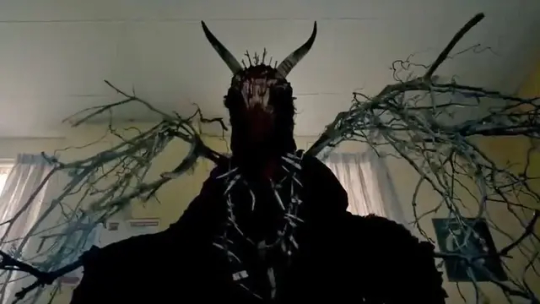
Honestly it is off-putting in a fashionable way. What do you guys think?
30k notes

💋 livinghauntedhouse follow
haters will say my delusions are negatively impacting my life but all this lesbian sex i'm having suggests otherwise. it's all about the Gothic Femme mindset, you lumpen ne'er-do-wells.
208 notes

🎵 notsoallamerican follow
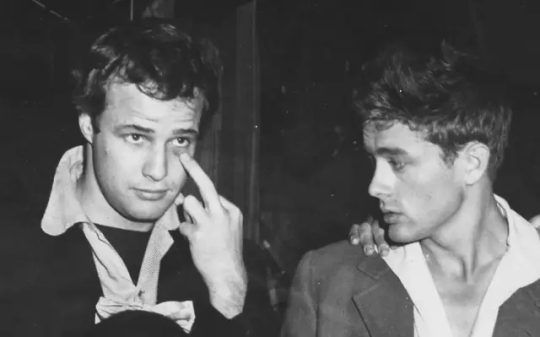
I really admire their friendship! Wish my guy friends wanted this same type of bond
🎭 offbroadwaybound follow
they were both bisexual and without a doubt fucking
🎵 notsoallamerican follow
What's bisexual???
3 notes

💎 designerbeauty follow
I'm just a classy woman looking for the Eduardo to my Mark. Literally WHAT is so unreasonable about this...
80 notes

💻 jugheadofficial follow
It's really hard being a sensitive straight guy. I love my friends, but they just can't understand what my life is like. New novel idea maybe? :/
🎵 notsoallamerican follow
Jughead :(
💋 livinghauntedhouse follow
can you invent a real problem you ghoulish closet case? some of us were sent to conversion therapy
💻 jugheadofficial follow
How did you do this to my post?
-1k notes
#riverdale#jughead jones#betty cooper#cheryl blossom#archie andrews#kevin keller#veronica lodge#a day in the life
699 notes
·
View notes
Text
1950s porn: Have you heard about these nudist colonies? Well the public has a right to know whats going on in them! By way of full motion documentaries! Just imagine the journalistic merit!
1960s porn: What if there were cuties AND ALSO they were nude? Just imagine what kinda stuff they'd get up to. They'd probably change in and out of clothes. Women love changing in and out of clothes.
1970s porn: Do you know what a clitoris is? Well my clitoris is in my throat and my doctor says that's why you have to put your penis down my throat to make me orgasm!
1980s porn: Did you know we can put penises in vaginas now? Penises in butts too!
1990s porn: PlayBoy models are dancing around in hazy rooms! The lighting is so classy! There are saxophones! You're watching it at home! Maybe it's cable! Maybe it's VHS!
2000s porn: Stop here. Let's ask this chick. Hey! Wanna get in our bus? We'll pay you! I know it looks like a van, but we like to call it a bus sometimes!
2010s porn: It's okay for step moms and step daughters to have threesomes together because they aren't really related.
2020s porn: That nintendo character has huge tits now and she needs you to piss on her!
2030s porn: Now that the revolution has been achieved we can fetishize capitalist exploitation from a comfortable distance (by paying girls to get into our van).
119 notes
·
View notes
Text
Paul and Ringo's conflict in 1969/70
SG: Then, what happened? You finally got to meet with John and Yoko, and there was an all-night session at the Dorchester hotel. And something happened in that all-night session at the Dorchester that totally won their allegiance to you. AK: John said, listen, the Beatles are represented by the Eastmans, will you represent me and Yoko? SG: The Beatles’ legal affairs were represented by the Eastmans? AK: You see, you have to read that piece of paper. SG: The piece of paper the Eastmans had with the boys? AK: Oh yes. All signed. SG: All of them signed it? AK: Yes. And Apple. It never used the word management, but it didn’t have to. If you represent all the negotiations throughout the world of Apple and the Beatles, you have it. The import of that particular piece of document was that everything would have to flow through them.
(Allen Klein, 1980, interview with Peter Brown and Steven Gaines, All You Need Is Love, 2024)
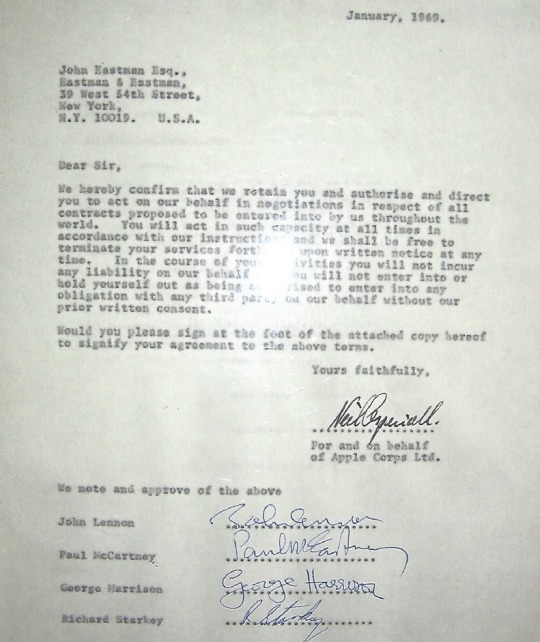
John comes into the office and says, ‘Don’t care about the others, don’t give a shit … but I’m having Klein, he can have all of my stuff and get it sorted out.’
(Derek Taylor, As Time Goes By, 1973)
AK: …We were just trying to get to know one another… Lennon and Yoko, I would rather not say what won them over for me. I would think that a principal thing was the fact that they really wanted someone for themselves. Apart from the Beatles. That’s really what it was. John is a very practical human being and the conflict was there, and it was his band and he was losing control, and he didn’t want to. He wanted to be protected. It was as simple as that. That first evening that I met with John, he said, “Do you want to represent us?” I said yeah.
(Allen Klein, 1980, interview with Peter Brown and Steven Gaines, All You Need Is Love, 2024)
When the four of us entered into our partnership agreement in 1967, we did not consider the exact wording or give any thought to the agreement's legal implications. We had thought that if one of us wanted to leave the group he would only have to say so. On the way in which the four of us had sorted out our differences in the past, I deny that it had been on a three-to-one basis. If one disagreed, we discussed the problem until we reached agreement or let the matter drop. I know of no decision taken on a three-to-one basis. I deny that the Eastmans and I obstructed Mr. Allen Klein in the preparation of accounts. Nor had the Eastmans been contenders for the job of manager for the group. I wanted them as managers but when the rest of the group disagreed, had not pressed the matter. Mr. Lennon had challenged my statement that Mr. Klein had sowed discord within the group, but I recall a telephone conversation in which Mr. Klein had told me, "You know why John is angry with you? It is because you came off better than he did on Let It Be.' Mr. Klein also said to me, 'The real trouble is Yoko. She is the one with ambition.' I often wonder what John would have said if he heard the remark.
(From Paul McCartney’s affidavit, Feb 26 1971, The Beatles Diary. Volume 2. After The Break Up. 1970-2001. Keith Badman)
I was very upset when they said I was just trying to bring in Lee Eastman, because he’s my in-law. As if I’d just bring in a member of the family, for no reason. They’d known me twenty years, yet they thought that. I couldn’t believe it. John said, ‘Magical Mystery Tour was just a big ego trip for Paul.’ God. It was for their sake, to keep us together, keep us going, give us something new to do…
(Paul McCartney, Private Call with Hunter Davies, May 1981)
Klein keeps saying that I don’t like him because I want Eastman to manage the Beatles,’ he said. ‘Well, this is how it really happened. I thought, and still think, that Linda’s father would have been good for us all. And I decided I wanted him. But all the others wanted Klein. Well, all right, they can have Klein, but I don’t see that I have to agree with them. ‘I don’t think I need a manager in the old sense that Brian Epstein was our manager. All I want are paid advisers, who will do what I want them to do. And that’s what I’ve got. If the others want Klein, well, that’s up to them, but I’ve never signed a contract with him. He doesn’t represent me. I’m sure Eastman is better for me.
(Paul McCartney, interview, Evening Standard, April 21-22, 1970)
In fact, there was one classic little meeting when we were recording Abbey Road. It was a Friday evening session, and I was sitting there, and I’d heard a rumor from Neil or someone that there was something funny going around. So we got to the session, and Klein came in. To me, he was like a sort of demon that would always haunt my dreams. He got to me. Really, it was like I’d been dreaming of him as a dentist. He came round to the session, and he said, “I gotta have this thing signed, I gotta get you guys on a contract,��� and then so I said, “Wait a minute, c’mon, it’s Friday night, what’s the hurry? Give us the thing over the weekend, and we’ll let ya know Monday?” Fair enough? And everyone said, “Uh-huh, there he goes.” ... John said, “Oh, fucking hell, here you go, stalling again.” I said, “I’m not stalling, I want it checked out. It’s a big movement, going with a new manager, you know, and maybe we don’t want to go with this guy. What’s the hurry? Why can’t he wait?”
(Paul McCartney, 1980 - All You Need Is Love: The End of the Beatles by Peter Brown and Steven Gaines, 2024)
‘Security is the only thing I want. Money to do nothing with, money to have in case you wanted to do something.’
(Paul McCartney (1964) in Love Me Do! The Beatles’ Progress by Michael Braun, 1964/1995)
They said, “Oh no, typical of you, all that stalling and what. Got to do it now.” I said, “Well, I’m not going to. I demand at least the weekend. I’ll look at it, and on Monday. This is supposed to be a recording session, after all.” I dug me heels in, and they said, right, well, we’re going to vote it. I said, “No, you’ll never get Ringo to.” I looked at Ringo, and he kind of gave me this sick look like, Yeah, I’m going with them.Then I said, “Well, this is like bloody Julius Caesar, and I’m being stabbed in the back!” It’s the first time you realize in our whole relationship that whenever we voted, we never actually had come to that point before—three were going to vote one down. That was the first time, and they all signed it, they didn’t need my signature.
(Paul McCartney, 1980 - All You Need Is Love: The End of the Beatles by Peter Brown and Steven Gaines, 2024)
Steve Miller happened to be there recording, late at night, and he just breezed in. ‘Hey, what’s happening, man? Can I use the studio?’ ‘Yeah!’ I said. ‘Can I drum for you? I just had a fucking unholy argument with the guys there.’ I explained it to him, took ten minutes to get it off my chest. So I did a track, he and I stayed that night and did a track of his called My Dark Hour. I thrashed everything out on the drums. There’s a surfeit of aggressive drum fills, that’s all I can say about that. We stayed up until late. I played bass, guitar and drums and sang backing vocals. It’s actually a pretty good track. It was a very strange time in my life and I swear I got my first grey hairs that month. I saw them appearing. I looked in the mirror, I thought, I can see you. You’re all coming now. Welcome.
(Paul McCartney in Many Years From Now by Barry Miles, 1997)
The nature of The Beatles’ management deal with Allen Klein remains a source of annoyance to McCartney: “I kept saying, ‘Don’t give Allen Klein 20 per cent, give him 15, we’re a big act!’ And everyone’s going, ‘No, no, he wants 20 per cent’. I say, ‘Of course he does, he wants 30, really, but give him 15. It’s like buying a car. You don’t give the guy what he asks for.’ But it was impossible in the end, because it became three to one and I was like the idiot in the corner – trying, I thought, to save the situation.” “And to Klein it looked like I was trying to screw the situation. He used to call me the Reluctant Virgin. I said ‘Fuck off, I don’t want to fucking marry you, that’s all.’ He’s going, ‘Oh, you know, he may, maybe he will, will he, won’t he, that’s a definite maybe.’
(Paul McCartney, Dec 2003, interview with Paul Du Noyer for The Word)
Q: He was once quoted in New York magazine as saying he was going to roast your ass. А: Yeah, well, he never did, you know, and that’s cool. He wouldn’t get near my ass to roast it, anyway. Punk.
(Paul McCartney, Jan 1974, interview with Paul Gambaccini for Rolling Stone)
[Allen] Klein came to London with the sole objective of closing the deal, and having had an unsuccessful meeting with Paul in the morning, he left for Heathrow to return home to New York. Paul and I were working together in Olympic that afternoon, and there was a noticeable sense of relief when he heard that Klein had left for the airport. However, Klein had second thoughts about leaving and decided to have one more attempt at changing Paul’s mind face-to-face. Unannounced, Klein walked into the studio, and very quickly it became apparent that as voices were raised a private conversation was taking place. I turned off all the mics in the room and left them to it. The control room of a studio is isolated from the recording room where the musicians play, but even all that acoustic treatment was not enough to prevent me hearing Paul McCartney defend himself against Allen Klein’s attempt at bullying him into submission. It was extremely unpleasant to witness.
(Glyn Johns, Sound Man: A Life Recording Hits with the Rolling Stones, the Who, Led Zeppelin, the Eagles, Eric Clapton, the Faces…, 2014)
I never much liked authority. I didn't like school teachers or critics telling me what I could do. Or myself telling me. I'm alive - do it!
(Paul McCartney, March 2001, interview with Nicci Gerrard for the Observer)
And the thing is, of course, you know that when you’ve got a daddy, it is nice. If you’re a little bit sort of worried as to what to do next, and your daddy says, [claps hands] “What are you worried about? Hey John, what do you want, son? You want a house? [claps hands] You got it.”
(Paul McCartney, November 11th, 1971, interview with Chris Charlesworth for Melody Maker)
They talk Klein’s script. John Lennon once said to Allen Klein, “So what do I do now, Allen?” You know, I mean, these are all – I’d say there are certain little things, you know, and… brought together in one big thing, it does look a bit sort of heavily that way. It’s not [inaudible]. But it’s all true, you know. It’s not… John did say that. And it indicates something that he’s just turned to Allen and said, “Well, what do I do now?” And that’s the kind of role that Klein is playing for them all now.
(Paul McCartney, November 11th, 1971, interview with Chris Charlesworth for Melody Maker)
The build-up is the thing — All these things continuously happening making me feel like I’m a junior with the record company, like Klein is the boss and I’m nothing. Well, I’m a senior. I figure my opinion is as good as anyone’s, especially when it’s my thing. And it’s emotional. You feel like you don’t have any freedom. I figured I’d have to stand up for myself eventually or get pushed under.
(Paul McCartney, 1970, interview with Richard Merryman for Life Magazine, published in April 16 1971)
When the Beatles were falling apart in 1969, he suffered from depression – staying in bed, forgoing shaving, drinking too much, taking consolation in little beyond his marriage to Linda Eastman.
(Paul McCartney, Nov 2013, interview with Jonah Weiner for Rolling Stones)
PAUL: As far as I was concerned, yeah, I would have liked the Beatles never to have broken up. I wanted to get us back on the road doing small places, then move up to our previous form and then go and play. Just make music, and whatever else there was would be secondary. But it was John who didn’t want to. He had told Allen Klein the new manager he and Yoko had picked late one night that he didn’t want to continue. … PAUL: And he said, “I wasn’t going to tell you until after I signed the Capitol thing, but I’m leaving the group.” And that was really it. The cat amongst the pigeons. … PAUL: We weren’t going to say anything about it for months, for business reasons. But the really hurtful thing to me was that John was really not going to tell us. I think he was heavily under the influence of Allen Klein. And Klein, so I heard, had said to John – the first time anyone had said it �� “What does Yoko want?” So since Yoko liked Klein because he was for giving Yoko anything she wanted, he was the man for John. That’s my theory on how it happened.
(Paul and Linda McCartney, interview for Playboy, December 1984)
For the first time in my life, I was on the scrap heap, in my own eyes. An unemployed worker might have said, “Hey, you still have the money. That’s not as bad as we have it.” But to me, it didn’t have anything to do with money. It was just the feeling, the terrible disappointment of not being of any use to anyone anymore. It was a barreling, empty feeling that just rolled across my soul, and it was… I’d never experienced it before. Drugs had shown me little bits here and there – they had rolled across the carpet once or twice, but I had been able to get them out of my mind. In this case, the end of the Beatles, I really was done in for the first time in my life. Until then, I really was a kind of cocky sod. It was the first time I’d had a major blow to my confidence. When my mother died, I don’t think my confidence suffered. It had been a terrible blow, but I didn’t feel it was my fault.
(Paul and Linda McCartney, interview for Playboy, December 1984)
“At a certain point I asked myself, ‘Are you going to sit around doing nothing, or are you going to make some music again?’ So I’d be at home sitting around, doing something on guitar, and Linda would say, ‘Oh, I didn’t know you could do that!’ Then I’d be drumming – ‘I didn’t know you could do that!’ So I got back into it just to impress Linda, really. I wanted to prove my usefulness again.”
(Paul McCartney, Nov 2013, interview with Jonah Weiner for Rolling Stones)
"The thing about Paul," George says, "is that apart from the personal problem of it all, he's having a wonderful time. He's going riding and he's got horses and he's got a farm in Scotland and he's happier with his family. And I can dig that."
(George Harrison, 1970, interview with Al Aronowitz)
Paul was already thinking about recording again. Never happy unless he was making music andwiththe Beatles not functioning, probably extinct, Paul began recording tracks for a solo album… Paul had been given a release date by Neil Aspinall [April 10, 1970 at first and April 17 later when Paul agreed to one week delay for help sales of Ringo Starr’s album “Sentimental Journey“, scheduled to be released on March 27] and he built the project around meeting the various deadlines that entailed: handing in a final mix tape, designing and proofing the cover art, approving test pressings and so on. Working with the artist Gordon House and the designer Roger Huggett, whom he still uses, Paul and Linda put the entire thing together at home. Paul: "I was feeling quite comfortable, the more I went on like this. I could actually do something again. Then I rang up Apple one day and said, "Still okay for the release date?" and they said, "No, we're changing it. You got put back now. We're going to release Let It Be first.""
(Paul McCartney, Many Years From Now by Barry Miles)
GEORGE: "But it's more of a personal thing, you know. That's down to the management situation, you know, with Apple. Because Paul, really - It was his idea to do Apple, and once it started going Paul was very active in there. And then it got really chaotic and we had to do something about it. When we started doing something about it, obviously Paul didn't have as much say in the matter, and then he decided… you know, because he wanted Lee Eastman his in-laws to run it and we didn't. Then that's the only reason, you know. That's the whole basis. But that's only a personal problem that he'll have to get over because that's… The reality is that he's out-voted and we're a partnership. We've got these companies which we all own 25 percent of each, and if there's a decision to be made then, like in any other business or group you have a vote, you know. And he was out-voted 3 to 1 and if he doesn't like it, it's really a pity…"
(George Harrison, May 1th 1970, interview with Howard Smith at WABC-FM radio in New York City)
Paul: They eventually sent Ringo round to my house at Cavendish with a message: "We want you to put your release date back, it's for the good of the group" and all of this sort of shit, and he was giving me the party line, they just made him come round, so I did something I'd never done before, or since: I told him to get out. I had to do something like that in order to assert myself because I was just sinking. Linda was very helpful, she was saying, "Look, you don't have to take this crap, you're a grown man, you have every bit as much right …" I was getting pummelled about the head, in my mind anyway.
(Paul McCartney, Many Years From Now by Barry Miles)
YORKE: Do you dislike writing a song and not being able to record it immediately? JOHN: I can’t stand it. I can’t stand having songs lying around for years. It just annoys me, and I think it annoys all of us.
(John Lennon, December 23rd, 1969, interview with Ritchie Yorke)
Dear Paul, we thought a lot about yours and the Beatles LPs – and decided it’s stupid for Apple to put out two big albums within 7 days of each other (also there’s Ringo’s and Hey Jude) – so we sent a letter to EMI telling them to hold your release date til June 4th (there’s a big Apple-Capitol convention in Hawaii then). We thought you’d come round when you realized that the Beatles album was coming out on April 24th. We’re sorry it turned out like this – it’s nothing personal*. Love John & George. Hare Krishna. A Mantra a Day Keeps MAYA Away.
(The letter from John and George to Paul, March 31th, 1970)
*in 1968 Two Virgins was released ten days prior to the White Album, btw
As a director of Apple, he had had to sign a letter that he wrote with John ordering Paul not to release his McCartney album on a day that would conflict with the release of the next Beatles record, Let It Be. When the letter was finished, Ringo had volunteered to deliver it because he didn't want Paul to suffer the indignity of having it handed to him by some impersonal messenger. At Paul's house, he gave the letter to Paul and said, "I agree with it."
(George Harrison, 1970, interview with Al Aronowitz)
“I went to see Paul. To my dismay, he went completely out of control, shouting at me, prodding his fingers towards my face, saying: 'I’ll finish you now’ and 'You’ll pay.’ He told me to put my coat on and get out. I did so.”
(Ringo, during 1971 Beatles court proceedings)
Ringo Starr said in his statement: “Paul is the greatest bass guitarist in the world.” But he added that he thought Paul had behaved like a spoiled child.
(Daily Mirror, February 24, 1971 - about the third day of the Court Case for the dissolution of The Beatles’ contractual partnership)
Then he had to stand there while both Paul and his wife, Linda, screamed at him. When Ringo returned from delivering the letter, he was so drained his face was white.
(George Harrison, 1970, interview with Al Aronowitz)
[John Lennon and George Harrison] didn’t send me round. They, as directors of the company, wrote a letter to him, and I didn’t think it was fair that some office lad should take something like that around. I was talking to the office, and they were telling me what was going on, and I said, ‘Send it up, I’ll take it round’. I couldn’t fear him then. But he got angry, because we were asking him to hold his album back and the album was very important to him. He shouted and pointed at me. He told me to get out of his house. He was crazy; he went crazy. He was out of control, prodding his finger towards my face. He told me to put my coat on and get out. I couldn’t believe it was happening. I had just brought the letter. I said, ‘I agree with everything that’s in the letter’, because we tried to work it like a company, not as individuals. I put my album [Sentimental Journey] out two weeks before [released 27 March 1970, in compliance with the original schedule], which makes me seem like such a good guy, but it wasn’t really, because I needed to put it out before Paul’s album, else it would have slayed me!
(Ringo Starr, 1971, from “The Beatles: Off the Record” by Keith Badman)
‘Strictly speaking we all have to ask each other’s permission before any of us does anything without the other three. My own record nearly didn’t come out because Klein and some of the others thought it would be too near to the date of the next Beatles album. I had to get George, who’s a director of Apple, to authorise its release for me. ‘Give us our freedom which we so richly deserve.
(Paul McCartney, April 21-22, 1970, Interview for the Evening Standard)
On the radio, they're playing Paul's album now. George may be the youngest of the Beatles but his attitude toward Paul is the same as a big brother trying to wait out a kid's tantrum because the kid can't get the candy he wants. He talks about the last time Paul spoke to him on the phone. "He came on like Attila the Hun," George says. "I had to hold the receiver away from my ear." It was as if the whole world was waiting for Paul's album and George was standing in its way. "I don't want to say anything bad about Paul," George laughs, "but I can be egged on."
(George Harrison, 1970, interview with Al Aronowitz)
From my point of view, I was getting done in. All the decisions were now three against one. And that’s not the easiest position if you’re the one: anything I wanted to do they could just say, ‘No.’ And it was just to be awkward, I thought. … I got so fed up with all this I said, ‘OK, I want to get off the label.’ Apple Records was a lovely dream, but I thought, ‘Now this is really trashy and I want to get off.’ I remember George on the phone saying to me, ‘You’ll stay on this fucking label! Hare Krishna!’ and he hung up – and I went, ‘Oh, dear me. This is really getting hairy.’
(Paul McCartney, The Beatles Anthology, 2000)
PAUL: I didn't want to do a press conference to launch the album because whenever I'd meet a journalist, they always floored me with one question: they'd say, "Are you happy?"' and it almost made me cry. I just could not say, "Yes. I'm happy," and lie through my teeth, so I stopped doing interviews. Peter Brown, who was at Apple at that time, said, "What are you going to do about publicity?"' I said, "I don't really want to do any." He said, "It's a new album. You'll kill it. Nobody'll even know it's out at all. You should do something." I said "Well, how do you suggest we do it?"' He said, "Maybe a questionnaire?"' I said, "Okay, look, you write some questions that you think the press wants to know. Send 'em over to me and I'll fill it out but I can't face a press conference." So the questionnaire came, and Peter Brown realised that the big question was the Beatles so he put in a couple of loaded questions and rather that just say, "I don't want to answer these," I thought, Fuck it. If that's what he wants to know, I'll tell him. I felt I'd never be able to start a new life until I'd told people.
(Paul McCartney, Many Years From Now by Barry Miles)
It is 1970. Paul still doesn’t like Klein but John digs him more than ever and George digs him more than that and Ringo doesn’t mind him. Paul? He is so uptight about Klein he only leaves the Beatles, that’s all. Klein and me meet the press and TV and all that; together we sit on a sofa and talk about Paul. Mr Klein, why doesn’t Paul like you? Mr Taylor, why doesn’t Paul like Mr Klein? I don’t know, don’t ask me, man, don’t ask me. Paul releases his album and Klein releases the Beatles’ album and they both make a million and Klein has had Phil Spector remix Paul’s song ‘The Long and Winding Road’, adding a women’s choir and some violins etc. Paul thinks this is the shittiest thing anyone has ever done to him and that is saying something, but Klein laughs up his silk sleeve and releases ‘Long and Winding Road’ as a single anyway and still with Phil’s new arrangement. Up there in Scotland, Paul McCartney, one of the four owners of Apple, the company formed to give total freedom, artistic control, to struggling performers and writers, wonders what went wrong, when even he can’t control his own work.
(Derek Taylor, As Time Goes By, 1973)
Q: "The album was not known about until it was nearly completed. Was this deliberate?" A: "Yes, because normally an album is old before it even comes out. (A side) Witness 'Get Back.'" … Q: "Is it true that neither Allen Klein nor ABKCO have been nor will be in any way involved with the production, manufacturing, distribution or promotion of this new album?" A: "Not if I can help it." Q: "Did you miss the other Beatles and George Martin? Was there a moment when you thought, 'I wish Ringo were here for this break?'" A: "No."
(Paul McCartney, April 9th 1970, press release 'McCartney')
Derek Taylor, the Beatles' press officer, is with us, talking about how unexpected Paul's attack had been. "He was only supposed to write out information explaining how he made the album,? Derek says. "Instead, he hands us this interview in which he asks himself questions, such as would he miss Ringo? It was entirely gratuitous. Nobody asked him that question. He asked that question of himself."
(George Harrison, 1970, interview with Al Aronowitz)
We’re beginning now to only call each other when we have bad news. The other day Ringo came around to see me with a letter from the others, and I called him everything under the sun. But it’s all business. I don’t want to fall out with Ringo. I like Ringo. I think he’s great. We’re all talking about peace and love, but really we’re not feeling peaceful at all. ‘There’s no one who’s to blame. We were fools to get ourselves into this situation in the first place. But it’s not a comfortable situation for me to work in as an artist.’
(Paul McCartney, April 21-22, 1970, Interview for the Evening Standard)
We all started on a bus and small clubs and things like that, but Paul is that type of person. Paul wanted to do it all over again, and he did. And he went through hell. He went through hell. I mean, now he’s not talking to me and that’s too bad, but he started again from the bottom to do the Paul McCartney show. I don’t wanna do it anymore. I did it once.
(Ringo Sarr, 1980, interview with Peter Brown and Steven Gaines, All You Need Is Love, 2024)
#sorry I know it's too long but I need context#paul and ringo#the beatles#john lennon#paul mccartney#george harrison#ringo starr#peter brown#steven gaines#all you need is love#john and paul#allen klein#accidental divorce#paul du noyer#interview: paul#interview: george#al aronowitz#paul and george#interview: ringo#barry miles#hunter davies
177 notes
·
View notes
Text
On Gothic
a cute helpful guide on the gothic subculture that no one asked for <3
goth music springing from the late 1970s after the post punk movement was a subculture heavily inspired by the themes found in victorian gothic literature
gothic literature:
frankenstein - mary shelley
dracula - bram stoker
jekyll and hyde - robert stevenson
wuthering heights - emily bronte
rebecca - daphne du maurier
edgar allen poe <3

some keywords that come from gothic literature that can help you spot a goth song:
'dark' 'death' 'black' 'cold' 'heaven' 'hell' 'witches 'bats' 'night' 'roses' 'blood' 'church' 'forest' 'jesus' 'grey' 'horror' 'shadow' 'sacrifice' 'tears' 'ghost' 'spells' 'cry' 'love' 'haunted' 'funeral' 'cathedral'
Some other themes in a song that can help you to decide if it goth or not can be:
heavy bass
synth sounds (the song sounds like it was recorded in an empty church)
mysterious and whimsical vocals
deep vocals
lack of a (electric) guitar
The 1980's and 90's were the peak for the gothic subculture, especially in camden market, london, england
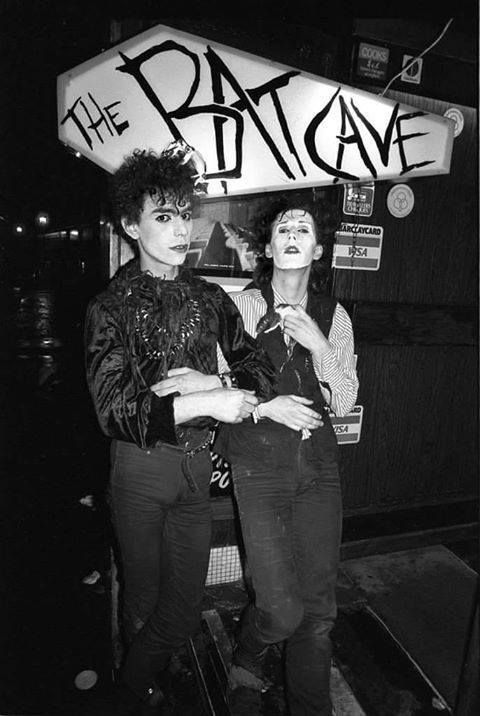
Some bands that were prominent at the time were...
Bauhaus
The Cure
Sisters of Mercy
Siouxsie and the Banshees
Christian Death
Clan of Xymox
The Cramps
Depeche Mode
New Order
Joy Division
Alien Sex Fiend
Fields of the Nephilim
Killing Joke
The Damned
Nick Cave
Softcell

Some other goth band recs:
Boy Harsher
Children on Stun
Earth Calling Angela
Molchat Doma
Forever Grey
Horror Vacui
Lebanon Hanover
London After Midnight
Male Tears
The March Violets
The Merry Thoughts
Paradise Lost
Paralysed Age
Plastique Noir
Rendez Vous
Rosetta Stone
Selofan
She Wants Revenge
Skinny Puppy
Specimen
This Cold Night
Tragic Black
Traitrs
Type O Negative
Twin Tribes
ULTRA SUNN
Xmal Deutschland
Your Funeral
The 69 Eyes

Please let me know which ones i've missed because these are just ones that I have taken from my own playlist!
The music is the number one most important part of goth subculture and you don't have to dress goth to be goth... but it sure is fun to do so! Goth fashion holds its roots in thrifting, upcycling and sustainable fashion (buying 'goth' clothes from shein, dollskill and killstar is a big no no).
Anyone can style their gothic outfits however they like but here are some examples of different styles:
Trad(itional) Goth:
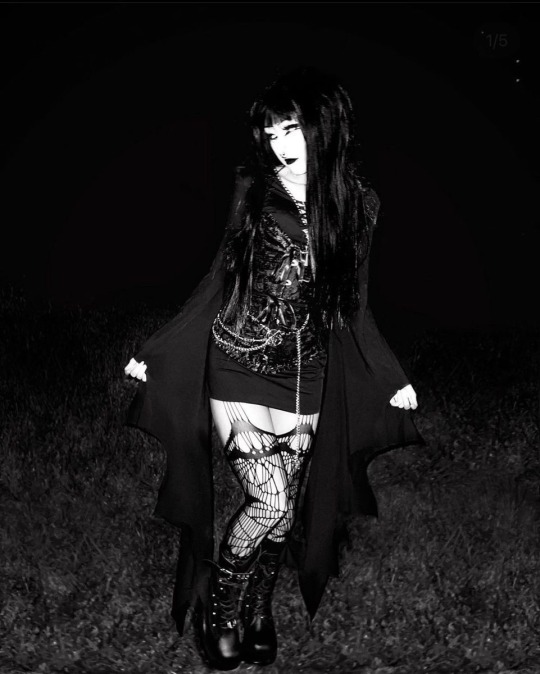
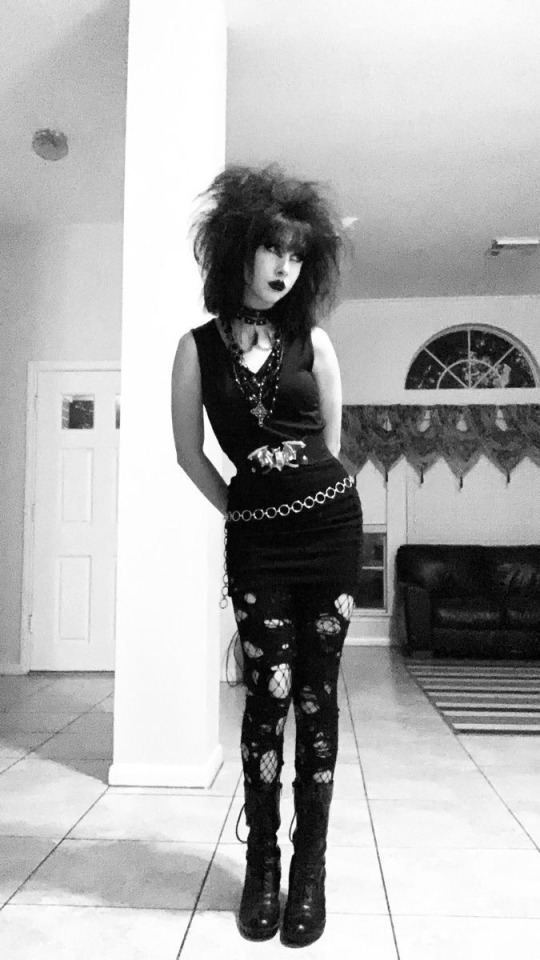
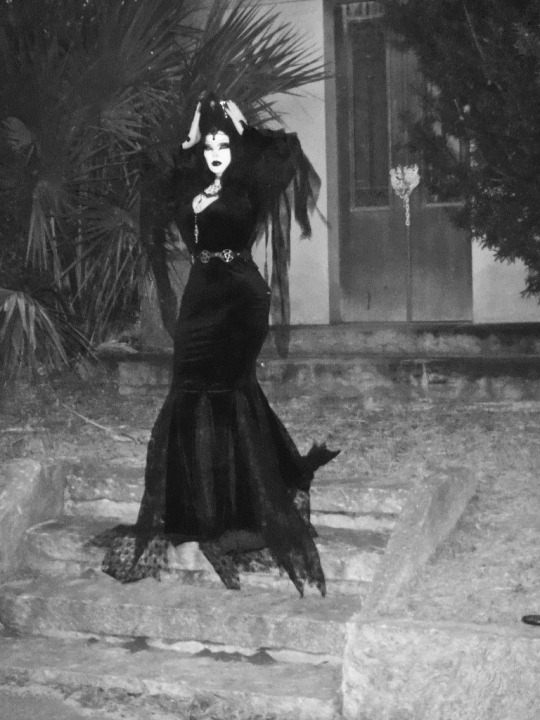
Romantic Goth:
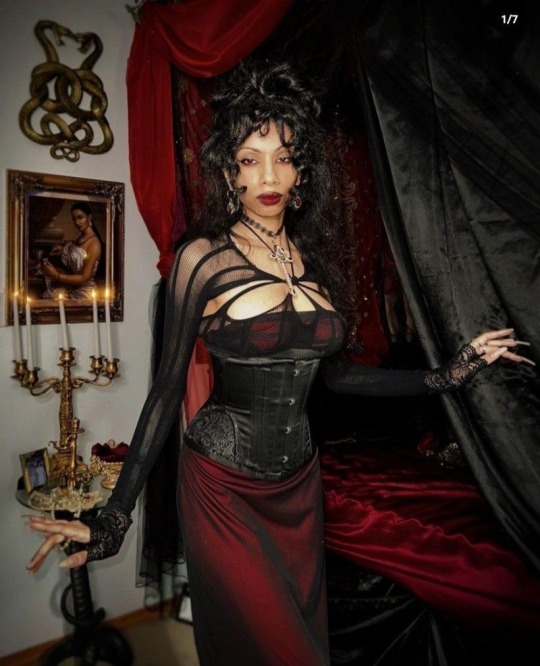
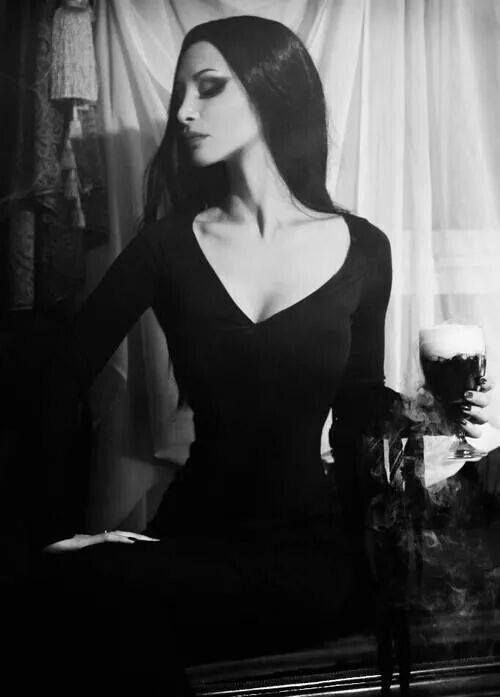
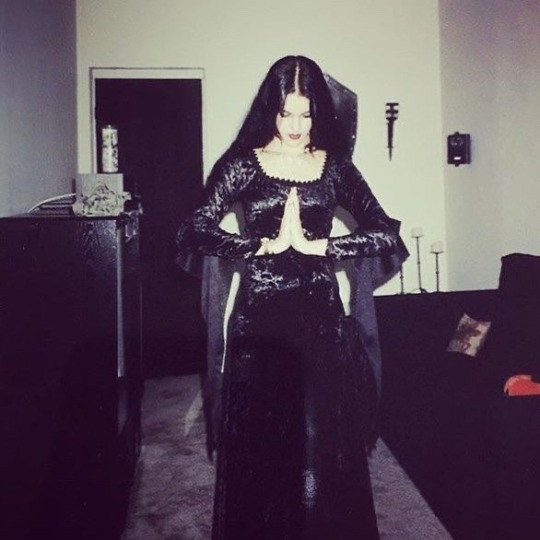
Victorian Goth:
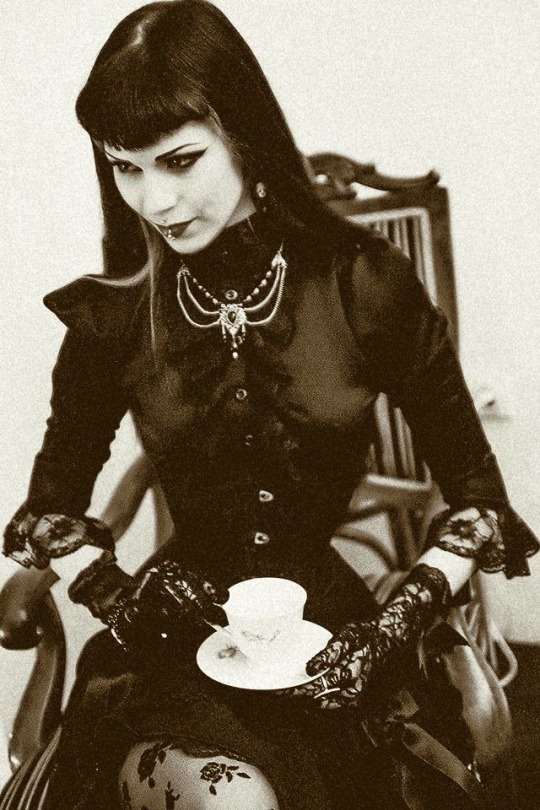
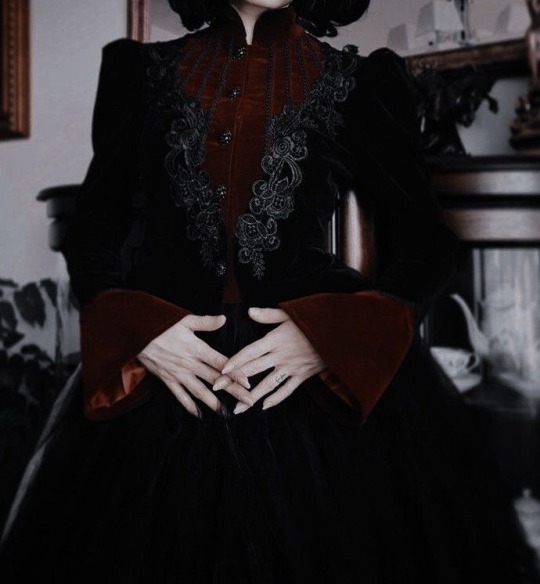
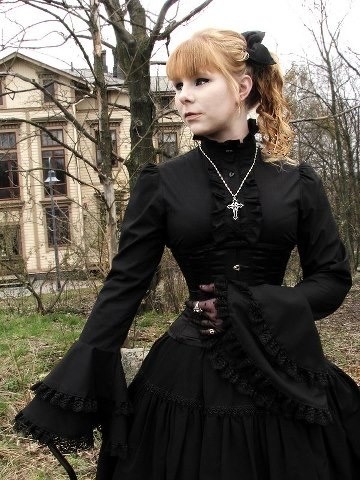
The styles can get very similar so let me know if i’ve mixed any up!
I’ve reached the limit on the number of pictures i can add so here are some more examples of goth styles:
Corporate goth
Gothabilly
Mall Goth
Cyber Goth
J-Goth
Baby Bat
Mopey Goth
Vampire Goth
Steam punk
To end the post i'm circling back to gothic literature by listing some films too (which are often based on the books)
Everyone's beloved: Bela Lugosi in the first adaptation of Bram Stoker's Dracula in 1931
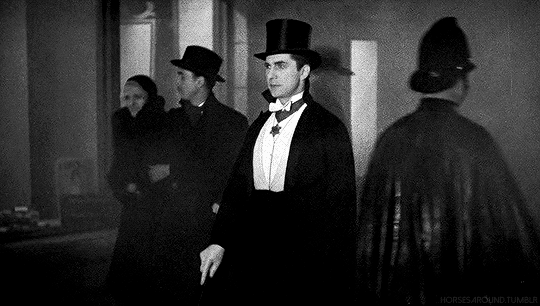
The Crow 1994 which comes with a song from The Cure

Interview with the Vampire 1994
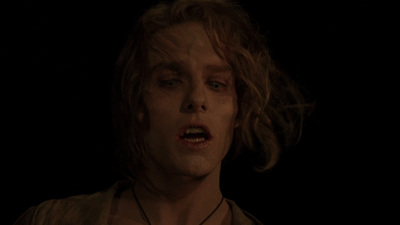
The Rocky Horror Picture Show 1975
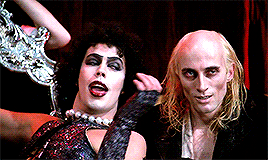
Edward Scissor Hands 1990
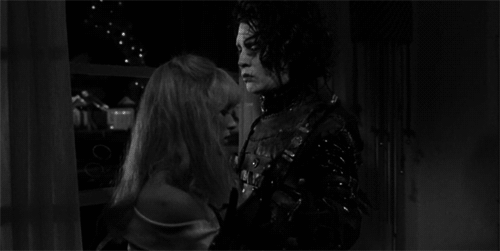
The Addams family 1991 (if he's not like gomez then i don't want him)

The Craft 1996
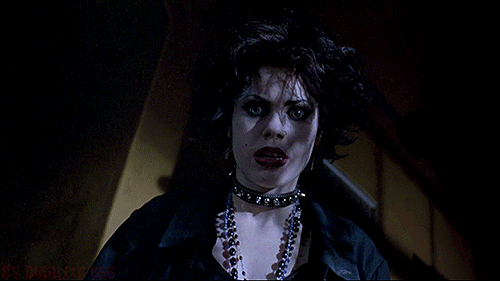
That's all I have for now and if you made it this far thank you so much for reading and have a nice day <3
current goth song on repeat:
#goth#gothic#goth aesthetic#goth fashion#romantic goth#corporate goth#mall goth#victorian gothic#goth girl#gothabilly#dracula#frankenstein#bauhaus#sisters of mercy#type o negative#joy division#the cure#siouxsie and the banshees#alternative#edgar allan poe#camden market#depeche mode#new order#christian death#boy harsher#j goth#baby bat#the crow 1994#the addams family#the craft
699 notes
·
View notes
Text
Just saw a post of someone saying that Daniel (from Interview with the Vampire) is so far into the closet that at the time of the Dubai interview he doesn't even realize he's queer.
And I really don't think that's true for his character.
He wrote articles about AIDS in the 1980s (later published in a book). He frequented gay bars in the 1970s (and possibly later). He's had sex with men. He's not repressed. (ETA: not repressed about the gender of people he's attracted to, anyway)
Now there's a lot we don't know about Daniel's life, so it is open to interpretation, I'll admit. But it really feels more to me that he's written to be someone who's, like, a 1 on the Kinsey scale. Like, his longest romantic relationships were with women. His primary motivation for being at gay bars in the 1970s really was to score drugs. (Tho that wasn't his only motivation). When he tells Armand "I can be on my knees in a minute" it really is just him "bargaining with desire" not expressing his own desire. He was definitely attracted to and intrigued by Louis (and flirting with Louis) in San Francisco, but the promise of sex alone probably wouldn't have convinced him to go to Louis' apartment. And for sure there is so much tension between Armand and Daniel in that Dubai apartment, you could cut it with a knife...it's just, y'know, both sexual and angry.
Daniel's a character with a lot of nuance in his sexuality. His sexuality is fluid. He's a character for whom his motivations for having sex are not always purely about desire (though desire is wrapped in it). And I love that! Finally a character whose sexuality is muddled...who doesn't fit into any boxes (not even those created by other queer people)...and yet who doesn't seem to be at all confused by himself. By the time we get to Dubai, he knows who he is, in terms of his sexuality.
And that doesn't make him less queer. His muddled queerness isn't a problem to be fixed. Hell, that's true even though Daniel might not even call himself queer or bisexual. This show has earned having a character do that. Like, the beauty of there being so many queer characters on this show is that no single character has to carry the weight of representation. So their sexual identities can be muddled and stay muddled.
#interview with the vampire#iwtv#amc interview with the vampire#amc iwtv#daniel molloy#I HAVE OPINIONS#and also yes this show loves its curve balls#so maybe we'll find out some other shit that make this untrue#but as of the end of season 2 and given the info we have been given this is the interpretation i think makes the most sense#i'm usually in the 'let bisexual characters call themselves bisexual' camp but in this case i'm not really worried about it#because the shows character have got so much depth to them whether or not they use that word is basically immaterial
161 notes
·
View notes
Note
bucket of facts here. This is one of my favorite f1 things ever, apologies for how long it ended up being:
In the 1980’s, formula one teams, notably BMW, added toluene to their fuel mixtures. If that word sounds like it’s probably dangerous, that’s because it is — most people know it as rocket fuel. It’s extremely poisonous and carcinogenic, but did have some upsides! For one, it was less volatile [citation needed] than what they had been using, making is slightly less dangerous in the event of a crash (by 1970’s-80’s F1 standards that just means in only turned into a small bomb most of the time). It was also denser and burned faster, so the same amount of toluene could give much more power than the standard F1 fuel.
While the new fuel did allow them to run higher turbo pressures, it did it have a tendency to increase turbo pressure as it was run during the race, and everyone ran turbos at this time. They had to dial back the turbo pressure from what it’s max could’ve been, just to compensate for the power of the fuel — this mitigated the admittedly high likelihood that the engine decided to submit its two weeks notice on two seconds of warning (read: it caught on fire and sometimes kinda maybe sorta just exploded).
Modern f1 fuel has an RON octane rating of 95-102. The toluene aided fuel had an RON octane rating of 120+. For context, your car probably runs on about 87 RON. For those unfamiliar, RON octane ratings measure how much compression fuel can be put under before it sparks, which is how engines work: compress fuel, spark, make power (I can explain that better if you want but short version is that). This incredibly high octane level allowed the engines of the time to be run at a much higher compression, which had a myriad of bonuses to the cars.
Current F1 regulations are 1.6 litre V6 engines that rev to 15,000 RPMs (max allowed) and produce a max of 850 BHP (horsepower) when they’re pushing the edge of their abilities without aid of electric components like H/KERS, which is used to boost the cars to around 1,000 BHP.
Brabham-BMW’s 1983 engine took Nelson Pique to his WDC that year. It was a 1.5 litre inline 4 (so smaller than current) and produced 12,000 RPMs, as the restrictions were a bit tighter there back then. Without electronic aid like today and a smaller engine than your standard Toyota Camry, it easily produced 850 BHP at race trim, the version built to last a whole race. When in qualifying trim, with everything tuned to maximum to get the most out of the car without it blowing up, it ran at 1,250 BHP. Original testing put it at producing over 1,400 BHP, but BMWs testing facilities couldn’t measure past that — the car put out more power than they could even register.
The teams also had a sneaky loophole: the amount of fuel allowed to be held at once in the car (refueling was banned at this time) was effectively limited to how large the gas tank could be. The teams realized that they could literally freeze the fuel and store it at cold temperatures. This compacted the fuel, allowing them to put more fuel into the gas tank — more fuel per fuel, really. This allowed drivers to be more aggressive and push harder more often, not having to worry about running out of fuel.
In case this whole toluene thing seems bad, don’t worry! It’s only used in nail polish, rubber, adhesives, and paints :3
hit me up for more facts if you want
oh my
anon bestie i might in fact be in love with you
#u definitely delivered with your fact this is so fucking silly#f1: exploiting loophole since the beginning of time#not a tag#from saph#f1#pls send facts whenever u please this is wonderful
114 notes
·
View notes